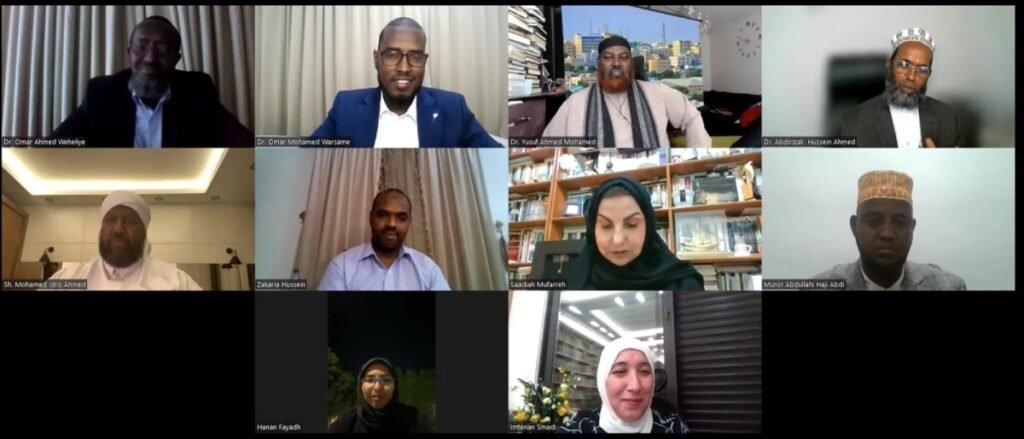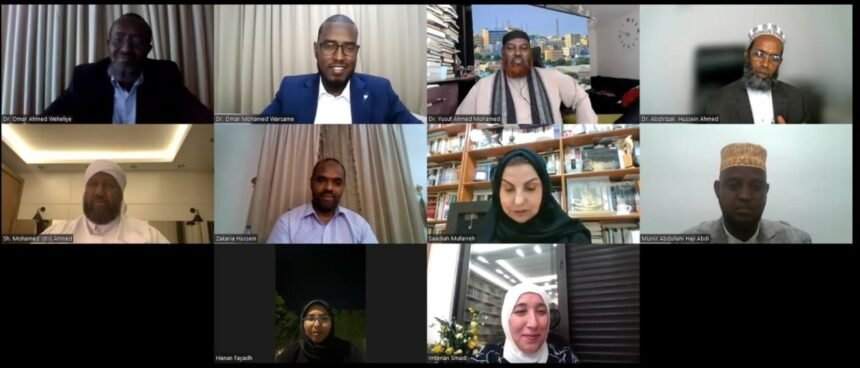
A professor at the Somali National University, Engineer Munir Abdullah Al Haj Abduh, showcased a paper of his that reflected personal experience in translating between Arabic and Somali over the course of twenty years.
While he was teaching in mosques, seminars, universities and scientific conferences, he interpreted and orally translated many Arabic texts to Somali.
He stressed that electronic translation between the Arabic and Somali languages require development of dictionaries, in order to make it easier for devices to make comparisons between the two languages and convey the meaning in a more accurate way.
A professor at the Language Center Doha Institute, Dr. Omar Muhammad Warsmah, highlighted in his paper the fields of translation between Arabic and Somali, by taking literature and human sciences as a model.
Stating that Somalia is an Arab country with a cultural specificity, all its people speak one language, which is Somali. He noted that the first printed translation of the Quran in the Somali language was in 1984, by Sheikh Mahmoud Muhammad Abdu, and what distinguishes it from other versions is that it has been reviewed by a number of Somali scholars.
The topic of obstacles facing the translation between Arabic and Somali was also addressed by Sheikh Muhammad Idris Ahmed, who holds a master’s degree in Sharia Law from Virginia, USA.
Since the translator faces difficulty in finding the right words, nouns and terms, he explained in his paper that the most prominent obstacles are linguistics and terminology.
The modern writing of the Somali language is also amongst these obstacles, since the language did not have the chance to develop in its grammar and expressions.
The translator is unable to find the proper sources and dictionaries that could aid him in the translation process, he explained.
To add to that, there are few who have knowledge in speaking and writing both languages, since a person can be well taught in the Arabic language, but is unfamiliar with the Somali language.
Sheikh Muhammad Idris Ahmed also pointed out that there is a lack of Somali people reading published works, since they lean more towards oral expression.
They can speak and listen for hours but find difficulty in writing or reading few pages, he explained. The lack of paper printing, publishing, newspapers and magazines all also affect writing and translation amongst the Somali people.
There are many other reasons to blame for the weakening of language translation, such as the low income that the translator makes, the difficulty that the translator faces when reaching out to an original publisher and the lack of encouragement towards the translation movement.
He applauded Sheikh Hamad Award for Translation and International Understanding in choosing the Somali language in its 9th session, as it is considered to be the first of its kind to encourage the translation between the Arabic and Somali language.
To overcome the stated obstacles, Sheikh Muhammad Idris Ahmed suggested encouraging writing in Somali language and spreading it in different ways.
He added that it would be beneficial to help Somalia in creating committees that could develop dictionaries and terminology of the Somali language next to the Arabic language, and not leave this task only to the translators.
Source: QNA


Leave a Reply